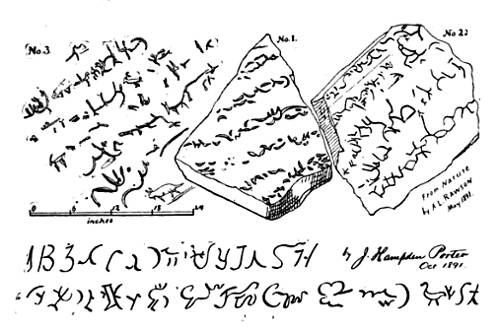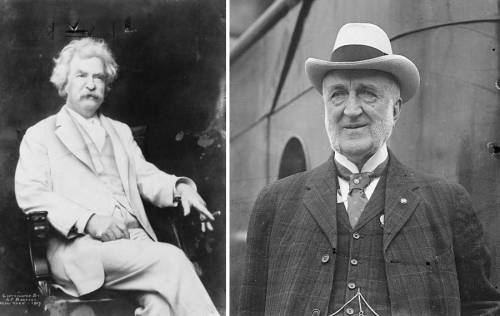
In 1891, J.H. Hooper found what he thought was a buried headstone on his farm in Bradley County, Tenn. On excavating it he found that the stone was part of a sandstone wall, about 16 feet of whose length was covered with unreadable marks arranged in wavy, nearly parallel lines.
A small sensation ensued. “Some of these forms recall those on the Dighton Rock,” wrote A.L. Rawson that year in the Transactions of the New York Academy of Sciences, “and may belong to the same age. How many other hidden inscriptions there may be in this, the geologically oldest continent, it is impossible to say but delightful to conjecture.”
Others thought they saw duplicates among the characters, as well as drawings of birds and animals. Could the inscription be Hebrew? Had the Lost Tribes of Israel somehow found their way to prehistoric Tennessee? No, as it turns out: Today it’s thought the marks were made … by mollusks.


